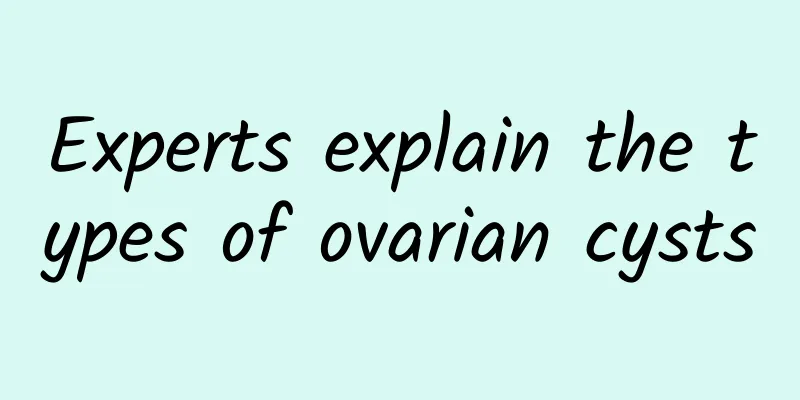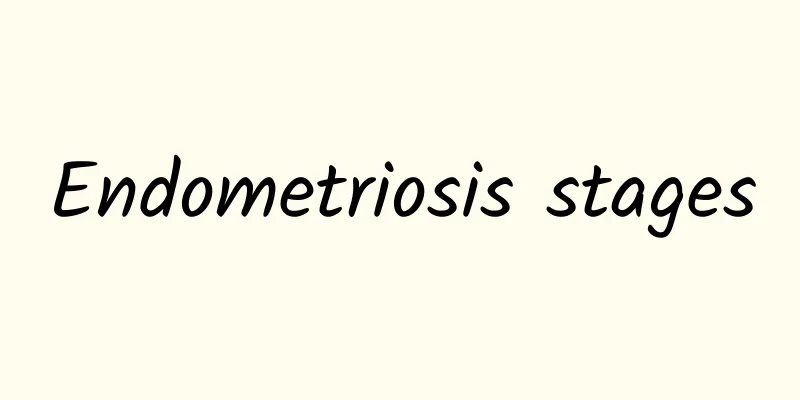What should be paid attention to for benign uterine fibroids? Do benign uterine fibroids need to be removed?

|
What should be paid attention to for benign uterine fibroids? Do benign uterine fibroids need to be removed? Uterine fibroids are one of the most common benign tumors in women. They usually grow in the uterine muscle wall and are nodules composed of smooth muscle cells. Most uterine fibroids are benign, but sometimes they can develop into malignant tumors. For benign uterine fibroids, patients should pay attention to the following points and choose whether to remove them according to the specific situation. First of all, for women with benign uterine fibroids, regular gynecological examinations are very important. Through regular physical examinations, the growth of uterine fibroids can be detected in time, as well as whether there are signs of malignant transformation. Gynecologists will use palpation or ultrasound to determine the size, location and nature of the tumor. Only by conducting regular examinations can the situation of uterine fibroids be grasped in time and appropriate treatment measures can be taken. Secondly, women with benign uterine fibroids should have their blood estrogen levels checked regularly. Changes in hormone levels may affect the growth of uterine fibroids. If estrogen levels are high, uterine fibroids may grow larger and symptoms may occur. Therefore, regularly checking hormone levels can help patients detect and control the growth of uterine fibroids early. In addition, patients with benign uterine fibroids should also pay attention to their eating habits. A diet high in fat, cholesterol, and salt may increase the risk of uterine fibroids. Therefore, patients should avoid eating too much fried food, desserts, and high-salt foods. Instead, they should choose a healthy diet, including more vegetables, fruits, and whole grains, and less processed foods and sugary drinks. For benign uterine fibroids, whether or not they need to be removed depends on the condition and the patient's needs. For small fibroids that do not cause symptoms, doctors usually recommend an observation strategy. This means regular gynecological examinations and monitoring the growth of the fibroids. If the fibroids are not enlarged and causing symptoms, then removal surgery may not be necessary. However, if the fibroids are large or symptoms occur, such as abnormal bleeding, pelvic pain, etc., then the doctor may recommend removal surgery. In summary, women with benign uterine fibroids should undergo regular gynecological examinations to monitor the growth of the fibroids. At the same time, they should also pay attention to their eating habits and avoid eating high-fat, high-cholesterol and high-salt foods. For small fibroids without symptoms, an observation strategy can be chosen, while for larger or symptomatic fibroids, resection surgery may need to be considered. Through scientific and reasonable management of benign uterine fibroids, the quality of life and health level of patients can be improved. In the popular science introduction section, you can briefly introduce the general situation of uterine fibroids. For example, uterine fibroids are one of the most common benign tumors of the female reproductive system, affecting the health of many women. It usually occurs in women of childbearing age and rarely occurs after menopause. In addition, the specific cause of uterine fibroids is still unclear, but estrogen and progesterone are believed to be related to their occurrence. If the growth of uterine fibroids is not controlled, it may cause symptoms such as irregular menstruation, anemia, pelvic pain, compression of the bladder and rectum, and may even affect fertility in severe cases. Therefore, it is very important to understand and know about uterine fibroids as early as possible. |
<<: What is the best way to remove uterine fibroids? How to remove uterine fibroids
Recommend
How are uterine fibroids formed? Uterine fibroids are generally formed by estrogen stimulation.
Many women with uterine fibroids worry about the ...
How much does Bartholin's gland cyst surgery cost?
Patients with Bartholin's gland cysts are in ...
Why do hospitals recommend abortion?
The reasons why hospitals recommend abortion main...
These early symptoms of ectopic pregnancy should be understood in time
These early symptoms of ectopic pregnancy should ...
Save your knees yourself! Scott: Practice these two moves to have "good knee strength"
"When the weather gets cold, knee joint pain...
What factors cause menopause?
The purpose of analyzing the causes of menopause ...
Does chronic cervicitis affect pregnancy? The three major hazards of chronic cervicitis in women
Chronic cervicitis is a common gynecological dise...
What causes congenital absence of vagina?
The gynecological disease congenital absence of v...
What are the factors that cause threatened miscarriage?
What are the factors that lead to threatened abor...
What foods can easily cause miscarriage? Here are 6
The following six kinds of food are most likely t...
How long does it take for menstruation to come after a miscarriage? What are the precautions after a miscarriage?
How long does it take for menstruation to come af...
Is eating oatmeal with milk a perfect match for breakfast? Be careful of these 3 types of people! Nutritionist Liu Yili warns: Long-term consumption affects calcium and iron absorption
Many people choose to drink a bowl of sweet and d...
How to treat cervical erosion without recurrence
Many women with cervical erosion will experience ...
What are the prevention methods for abnormal leucorrhea?
Leucorrhea is a white liquid that flows out of th...
Breaking the record! 1 bowl of sesame oil chicken = 4 bowls of rice
The must-have supplement for postpartum confineme...









